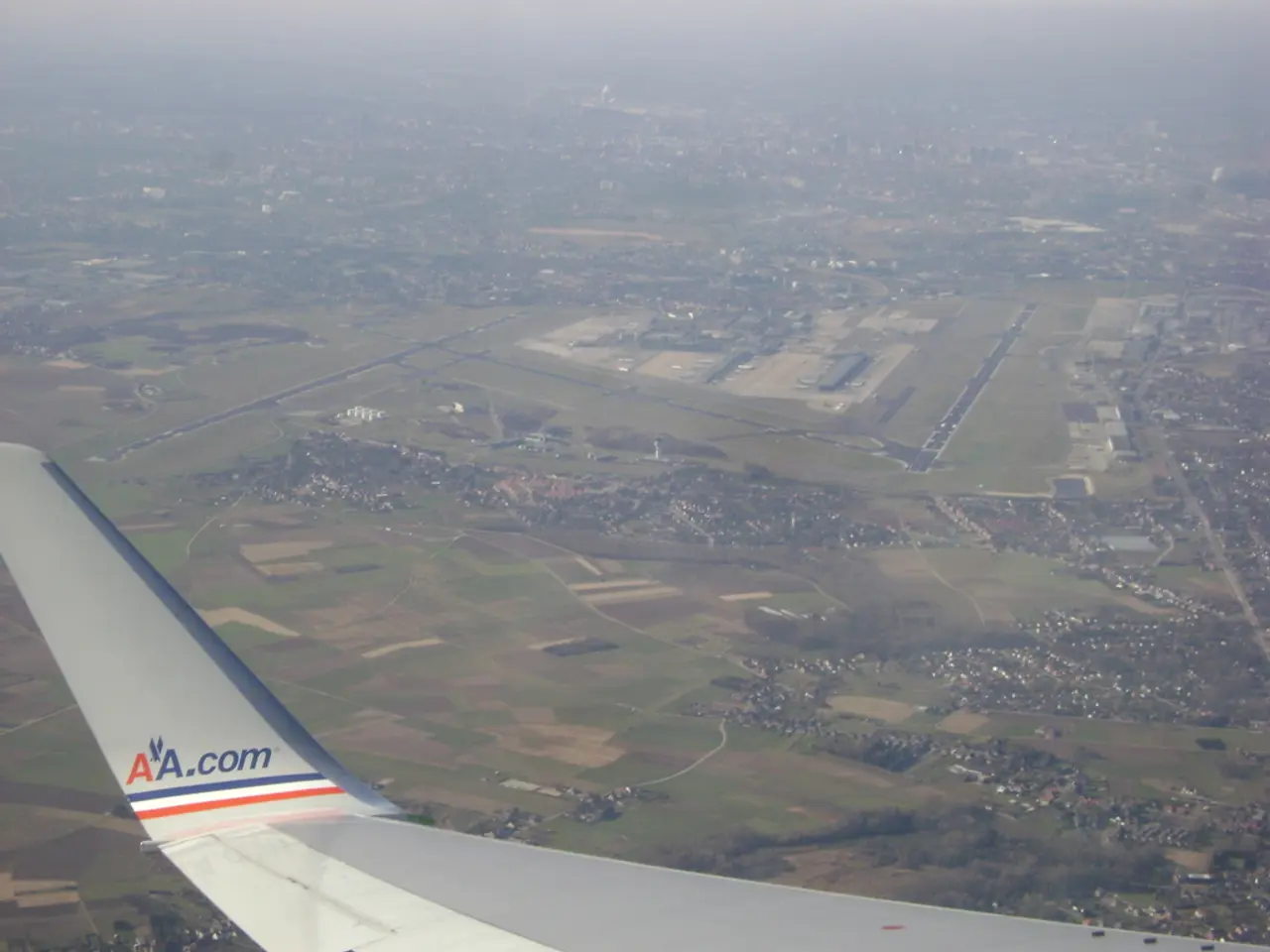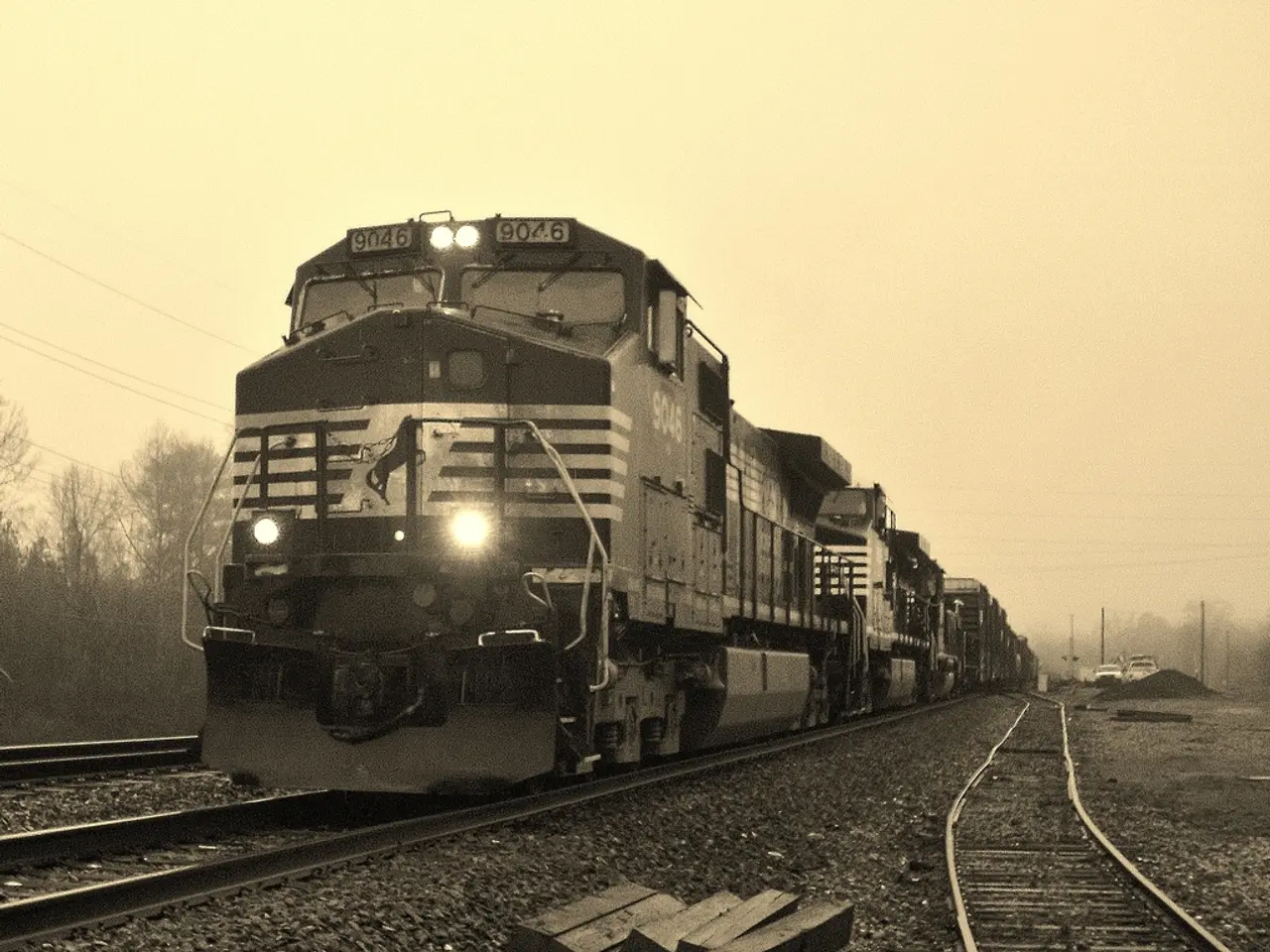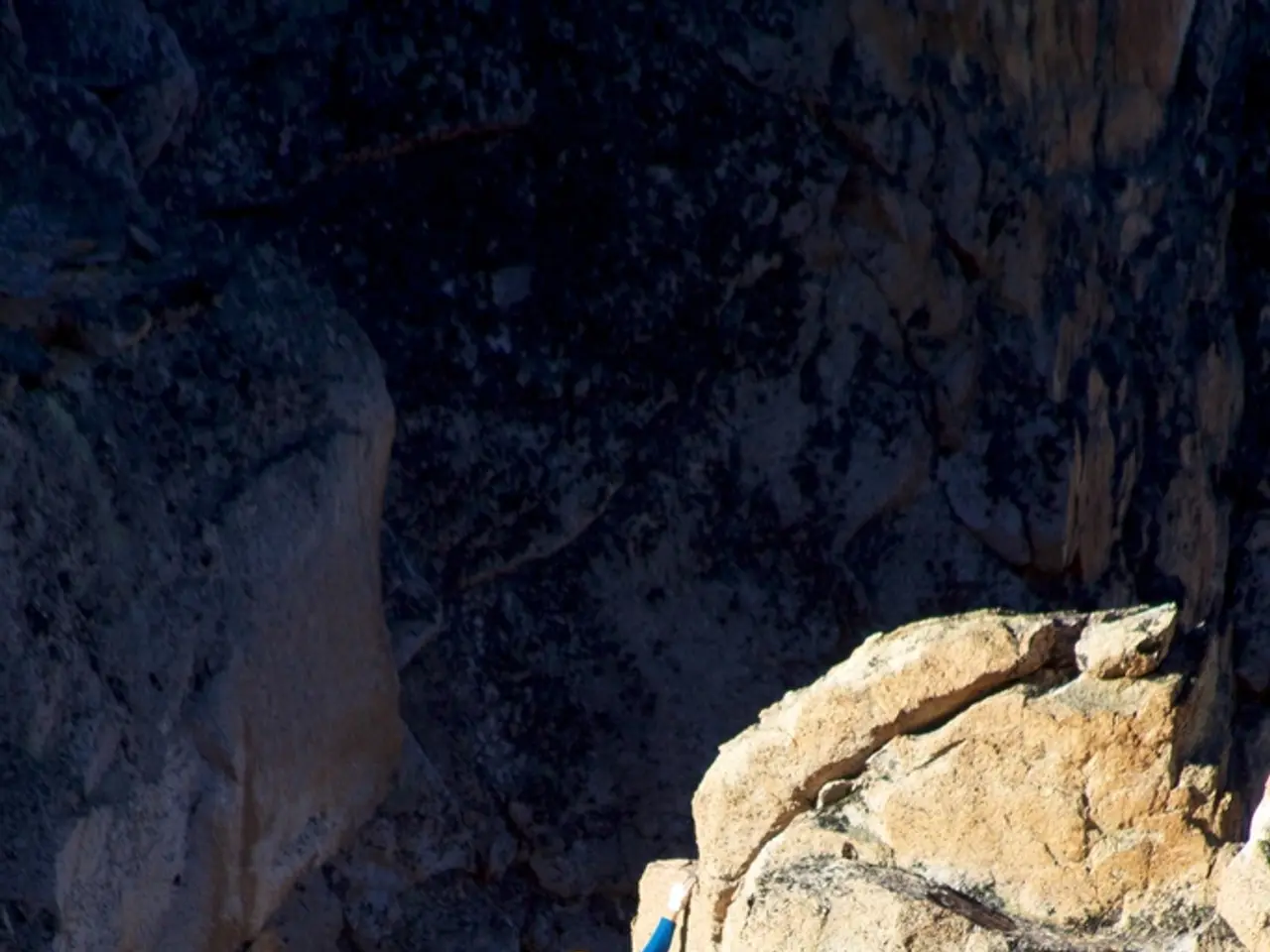Increasing Prevalence of Right-Wing Extremism Observed in the AfD within the Southern Region
In a recent survey conducted by Insa from July 28 to August 1, the political landscape of Munich has been under scrutiny. The poll, which gathered insights from 1,203 people, has shed light on the potential coalition possibilities for the upcoming elections.
The recent polls showing the AfD at 25% and the Union parties (CDU and CSU) at 27% have narrowed the coalition possibilities, not just by political feasibility, but also by established taboos, particularly regarding cooperation with the far-right AfD.
Historically, the CDU/CSU has ruled out legislative cooperation or coalition with the AfD due to the AfD’s right-wing populist positions and controversies. For instance, after the 2025 Bundestag election, the CDU/CSU leader Friedrich Merz faced credibility issues when a motion tightening asylum laws was passed with votes including the AfD, undermining public pledges to avoid collaboration with them [1].
Given these circumstances, the most likely coalitions for the Union in Munich would involve traditional partners such as the Social Democrats (SPD), the Greens, and possibly the liberal FDP. Nationally, the CDU/CSU currently governs in coalition with the SPD and sometimes with the support of the Greens, emphasizing policy over ideological overlap [2][3].
The AfD’s strong 25% showing, while signalling the rise of right-wing populism, does not necessarily translate into coalition options for the mainstream Union parties, who seem committed to excluding AfD from formal coalitions to maintain democratic and political norms post-Merkel [1][3].
The SPD, which has become the third-largest party nationally by 2025, remains a key coalition partner for the Union, often focusing on balancing fiscal conservatism and social policy with the emphasis on climate goals and European stability [1][2].
In Munich specifically, coalition options given these poll results likely revolve around combinations of the Union parties, SPD, the Greens, and possibly the FDP, but not with the AfD due to established political taboos and the risk of credibility loss for the Union. The AfD’s electoral strength increases its influence in opposition but does not currently open formal coalition possibilities with mainstream parties in Munich or at the federal level [1][3].
CSU leader Markus Söder has reiterated his stance, ruling out cooperation with the AfD. As the AfD currently presents itself, a coalition with them is "out of the question" for Söder [4]. Söder suggests expanding the party's observation [5].
The AfD has gained slightly, reaching 25% in the latest Insa poll, just behind the Union (CDU and CSU) [6]. This is the highest percentage for the AfD since mid-May, marking an increase of one percentage point [7].
However, the SPD, Greens, and Left parties have seen a slight decrease in support, with the SPD currently at 15%, the Greens at 11%, and the Left at 10% [8].
Despite the AfD's recent polling success, Söder criticized the "constant panic" in Germany and emphasized that it's time to govern [9]. Now, according to Söder, it's time to focus on the issues at hand and move forward.
References:
[1] Deutsche Welle (2023). Merz faces credibility issues over AfD vote. [Online]. Available: https://www.dw.com/en/merz-faces-credibility-issues-over-afd-vote/a-61538033
[2] Reuters (2023). Germany's CDU/CSU and SPD form government after election. [Online]. Available: https://www.reuters.com/world/europe/germanys-cdu-csu-and-spd-form-government-after-election-2023-02-08/
[3] The Guardian (2023). Germany's CDU/CSU and Greens agree on climate policy. [Online]. Available: https://www.theguardian.com/world/2023/mar/01/germanys-cdu-csu-and-greens-agree-on-climate-policy
[4] Der Spiegel (2023). Söder rules out cooperation with the AfD. [Online]. Available: https://www.spiegel.de/politik/deutschland/soeder-lehnt-koalition-mit-der-afd-ab-a-8414367.html
[5] Die Welt (2023). Söder suggests expanding the party's observation. [Online]. Available: https://www.welt.de/politik/deutschland/article203789159/Soeder-will-Parteienbeobachtung-verstarken.html
[6] Insa (2023). AfD reaches 25% in latest Insa poll. [Online]. Available: https://www.insa-umfragen.de/news/afd-reicht-25-prozent-in-letzter-insa-umfrage
[7] Tagesschau (2023). AfD's recent polling success. [Online]. Available: https://www.tagesschau.de/inland/afd-umfrage-101.html
[8] Forsa (2023). SPD, Greens, and Left see slight decrease in support. [Online]. Available: https://www.forsa.de/presse/pressemitteilungen/afd-stark-spd-greens-und-die-linke-sieht-leichte-verluste-an
[9] Die Zeit (2023). Söder criticizes the "constant panic" in Germany. [Online]. Available: https://www.zeit.de/politik/deutschland/2023-08/soeder-deutschland-constant-panic-afd
In light of the recent poll results, the political landscape of Munich may see coalition options involving traditional partners such as the Social Democrats (SPD), the Greens, and possibly the liberal FDP, as the AfD's controversial positions and right-wing populist views make formal collaboration unlikely.
The ongoing focus on service, general news, crime-and-justice, and war-and-conflicts in politics emphasizes the need for maintenance of democratic norms, as the AfD's rise in popularity does not necessarily translate into coalition agreements for the mainstream Union parties, especially considering the established taboos against collaboration with them.








